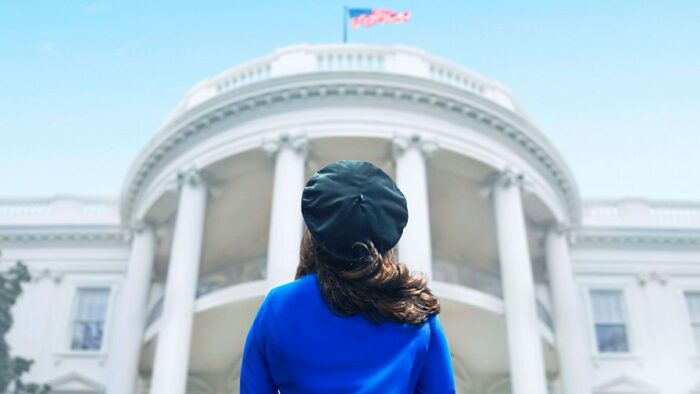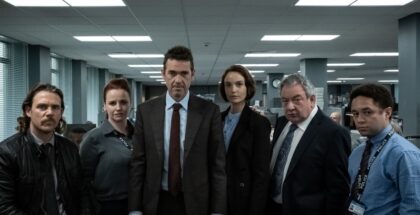True Crime Tuesdays: American Crime Story: Impeachment
Review Overview
Performances
8Analysis
4Re-evaluation
4Helen Archer | On 06, Dec 2022
American Crime Story, the Ryan Murphy anthology series that draws on the recent past in order to recontextualise it for a modern audience, has found its streaming home on Disney+. The three completed season take on, separately, the 1995 OJ Simpson trial, the 1997 murder of Gianni Versace, and the affair between White House intern Monica Lewinsky and President Bill Clinton, which led to Clinton’s impeachment in 1998. The latter is, sadly, the weakest of the three instalments – made all the more galling by the thought of what could have been.
Impeachment shares much in common with The People versus OJ, not least the fact that both were based on books by Jeffrey Toobin – The Run of His Life: The People versus OJ Simpson, and A Vast Conspiracy: The Real Story of the Sex Scandal That Nearly Brought Down a President. Yet while The People versus… incisively examined the ways in which peripheral characters were affected by their part in history, with themes of racism, misogyny and the nature of justice, Impeachment has much less of an authorial voice, opting to chronicle the events as they happened, rather than re-evaluating society’s reaction to them.
It is, for the most part, an infuriatingly boring watch, with early episodes being particularly repetitive and uninvolving, despite a terrific ensemble cast. Beanie Feldstein and Sarah Paulson deliver excellent performances as Monica and Linda Tripp, respectively – especially as the season goes on, and Monica’s charisma and likeability is dialled up, while Paulson becomes ever-more enraged, her mouth pulled down in a perma-scowl as she smokes, eats microwave dinners for one, and encourages Monica to spill the beans in secretly recorded phone calls. Clive Owen perfects Clinton’s good ol’ boy Southern charm and amorality, and his marriage to Edie Falco’s Hillary is both believably convenient and fraught with history.
Though we are told – repeatedly – that the affair was an abuse of power, the message is weakened by what we are watching. Paula Jones (Annaleigh Ashford) – who went public first, after Clinton attempted to initiate sexual contact with her – is given fairly short shrift, portrayed as a gullible and easily manipulated woman who was latched onto by those who would exploit her, but her voice is so weak that we learn little about her beyond that. Likewise, the series seeks to show the way in which Juanita Broaddrick’s rape accusation was sidestepped by the media and law enforcement, by simply sidestepping it itself. She is treated as a footnote in the series, as she was treated in life.
Clinton’s anger at those who seek to bring him down could be seen, as portrayed here, as understandable – “dark forces” do indeed employ overtly unethical methods to get his victims to speak out. Monica’s embarrassment at the level of detail the authorities coerce her into revealing is gut-wrenching, but, to a lesser extent, so is that of the President. It all serves to dilute the lessons society should have taken from movements such as #MeToo. Similarly, by placing Tripp front and centre, and as the target for the media’s ire, we also bypass much of Clinton’s responsibility, judging the female behaviour rather than the men who abuse the power in the first place. The programme is less critiquing such behaviours than it is repeating it.
It all feels like a terrible missed opportunity. The material is ripe for both serious analysis and dark satire, and yet it opts instead for pedestrian dramatisation. Henry Glassie wrote, in Passing the Time in Ballymenone, that “history is not the past but a map of the past, drawn from a particular point of view, to be useful to the modern traveller”. While Impeachment impeccably shows us what happened, the modern traveller must, sadly, draw on their own cartography.

















